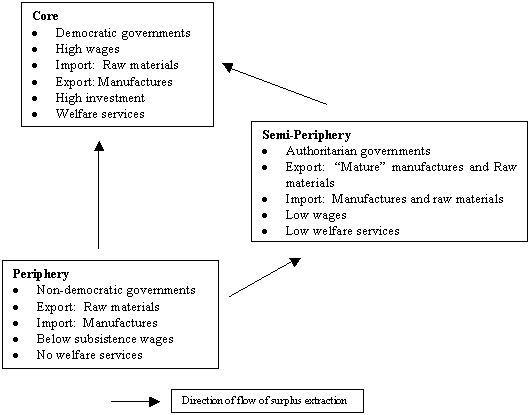Featured Content, June 3 - 5:
Critical Commentary - An Alternative Perspective to Lecture One, Melanie Martin
Hi, my name is Melanie Martin and I'm a graduate of the University of Toronto's International Relations Program. I'm also this year's G8 Research Group Catherwood Scholar and Professor John Kirton's Research Assistant.
My role in the G8 Online is to provide alternative theories and perspectives to those presented by Professor Kirton and the other G8 scholars. While most of the course material offers optimistic approaches of the importance and success of the G8, I will submit a more critical assessment its role in global governance.
In his opening lecture, Professor Kirton asserts that the idea of global governance evolved as a mechanism for leaders to "protect their subjects" and "avoid conflict." I propose that global governance, both its current and historic incarnations, was created to maintain the status quo and power of society's elites. This assertion is based on world systems theory, an alternative model used to conceptualize international relations.
World systems theory sees states as belonging to one of three major groupings: the core, the semi-periphery and the periphery. For a more complete explanation of the differences between the groupings, please see Figure 1-1. Very briefly, the periphery is exploited by the core and the semi-periphery. The semi-periphery is exploited by the core. This exploitation is possible because the states belonging to the core grouping control the wealth and hence the governance mechanisms that enable them to create the rules that propagate their power.
World systems theory's proposals counter the assertions of realists and liberal institutionalists. These schools of thought all proclaim that global institutions and governance structures, such as the G8 and the United Nations, exist in order for states to agree on a set of mutually beneficial rules and principles. However, as can be witnessed by the inequalities present in our world, these regulations do not benefit everyone equally. In 1960, the richest 20% of the world's population were 30 times better off than the poorest 20%. By 1996, the richer were 61 times wealthier.1 Indeed, it seems as though under our current governance structure, the rich and powerful prosper at the expense of the poor and the weak.
World systems theorists argue that scholars must examine international relations from a holistic approach in which there is no distinction between economics, history and politics. The holistic approach is necessary since global governance occurs within a system dominated by global capitalism. By viewing international relations within its historic context, world systems theorists are often skeptical about the emphasis currently being placed on globalization. Instead, they see globalization as being part of a long-term trend in the development of a global economy in which all features have become interconnected. In addition, some would propose that globalization is increasingly being used as an ideological tool to justify reductions in workers rights and welfare.
Since there are so many competing conceptual models in international relations, we need to keep an open mind when performing analysis. Rather than taking for granted that the state holds all of the power in the anarchic international arena, as realists propose, we need to assess whether assertion is accurate, given the current status of international law. We ought to question the motives behind co-operation in the international system - do states act in their own self-interest, as proposed by realists, or do they co-operate to achieve the greater good, as predicted by liberal institutionalists? Or, do states manipulate their power in order to maintain the status quo at the expense of the developing countries in the system's periphery, as suggested by world systems theory? Where does the power lie in the international system - with states, with multinational corporations, with civil society or with international organizations?
These are the basic questions we should keep in mind while reading the upcoming lectures. Remember - the fundamental perspective from which you approach the material will colour your learning experience.
Note
1. John Baylis and Steve Smith, ed. (1997), The Globalization of World Politics: An Introduction to International Relations, Oxford, Oxford University Press, p. 125.
Further Reaadings
Very Basic Introduction to International Relations
John Baylis and Steve Smith, ed. (1997), The Globalization of World Politics: An Introduction to International Relations, Oxford, Oxford University Press, p. 125.
World Systems Theory
Wallerstein, Immanuel (1996), "The Inter-State Structure of the Modern World-System," in S. Smith et al., International Theory: Positivism and Beyond, Cambridge, Cambridge University Press.
Chase-Dunn, Christopher (1989), Global Formation: Structures of the World-Economy, Oxford, Blackwell.
Criticism of World System's Theory
Skocpol, T. (1977), "Wallerstein's World Capitalist System: A Theoretical and Historical Critique," American Journal of Sociology, 82:5.
Harvey, D. (1987), "The World System's Theory Trap," Studies in Comparative Development, 22:1.
Figure 1-1: Interrelationships in the World-Economy
(from Baylis and Smith - page 132)
